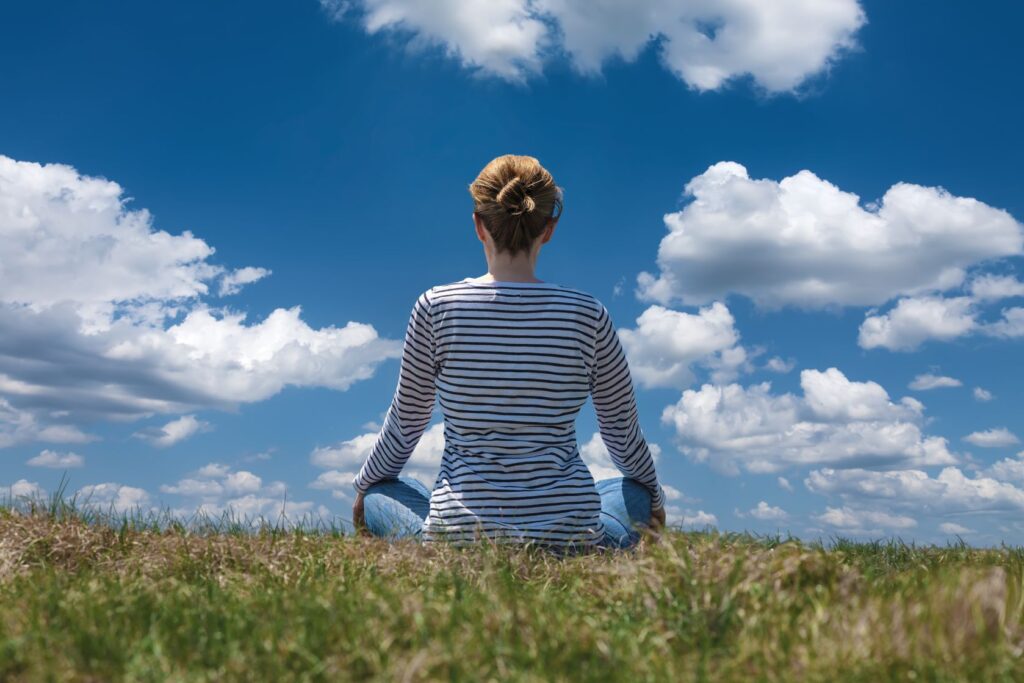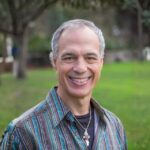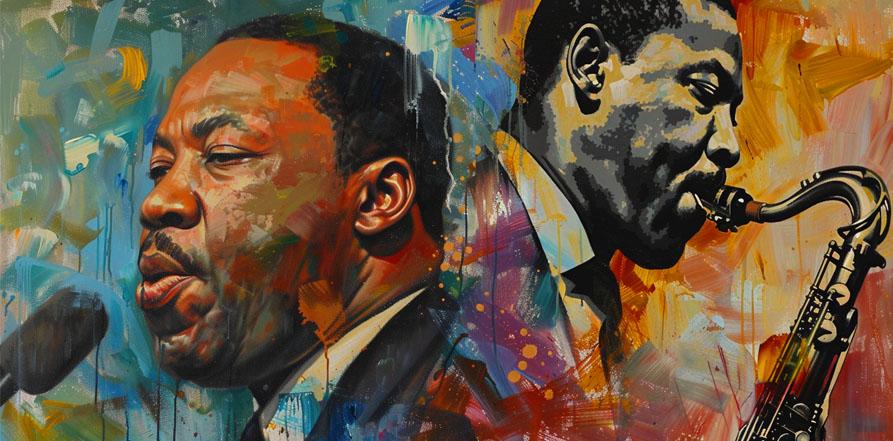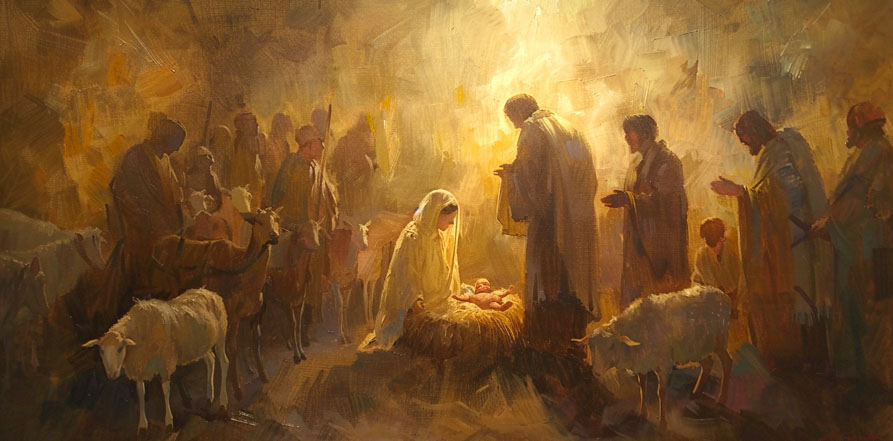“You can’t live a perfect day without doing something for someone who will never be able to repay you” ~John Wooden, UCA Basketball coach
As we move into the New Year, I pray that we all seek and find ways to live a balanced life, and in so doing, help to restore balance to our relationships and our world. Balance requires groundedness, steadiness, and stillness, allowing our actions to be guided by reflection and inner prayer. As difficult as it may sometimes be, God calls us to devote ourselves to bringing love and compassion to all in order to restore harmony and goodness in our fragmented world.

True selfless love is a gift from God, a sacred grace that invites us and challenges us to respond with whatever capability we have within us to love God, one another and all of creation. If we look to the Christian mystics, we see a deep desire for the soul to seek union with the Divine through interconnectedness and ‘Oneness’ with the world. What the early monks and mystics sought was union—an intense experience of inwardness that is glaringly absent today. I believe this absence is the root cause for the conflict and dissonance that plagues our world.
In John Cassian’s Conferences, a classic of Western Spirituality, he states the “Soul seeks this One, which is permanence, unity, foundation of the universe,” and to “achieve this you must have unshakeable humility of heart, which illumines through the achievement of love.”
In his account of the early Christian monastic movement in the deserts of Egypt, Cassian describes spiritual life as a journey toward puritas cordis, or purity of heart. Cassian tells of Abba Isaac (Saint Issac the Syrian), a 7th century theologian who believed that to pray, we “must withdraw from all the worry and turbulence of the crowd.” In that state of spiritual yearning, God’s presence becomes known. “He will be all that we are zealous for, all that we strive for,” Abba Isaac said. “He will be all that we think about, all our living, all that we talk about, our very breath.”[1]
Cultivating a Deep State of Prayer
In a deep state of contemplative prayer, we can be lifted into a state of love, joy, freedom, and inner peace. In the quietness of our prayer, we realize there is one spiritual force that lives in us, as well as all around us. We need only to gather that force and use it in our unique individual way to bring love and goodness to the world.

Many people tell me they do not know how to pray, or how to dialogue with God or a higher power. I find it helpful to begin meditative prayer by reciting a short prayer such as this by Brother Lawrence:
“O Lord, enlarge the chambers of my heart that I may find room for THY love,
Sustain me by THY Power, lest the fire of THY love consume me.”
Repeat this several times, clear any thoughts from the mind, open the gate to the soul, and be still.
In his book Yes It’s Love: Your Life Can Be A Miracle, scientist Orest Bedrij says “Prayer lifts us into a new realm, above the mundane, into the spiritual. It moves us beyond doing so we emerge into being.” Our doing should always be a reflection of our being.
Contemplative practices are a part of the Christian and Jewish traditions. St. Issac wrote, “If you love the truth, love silence; it will make you illumined in God like the sun and will deliver you from the illusions of ignorance. Silence unites you to God.”
Finding Common Ground in Different Faiths
Though I identify as an Eastern Catholic Franciscan, over the past four years I have been part of a Jewish based group called “Mussar” which is focused on spiritual work for the benefit of others (the Whole). The focus is on how we translate our inner ‘being’ self to our outer ‘doing’ self for the benefit of humankind and the universe. Simple acts of kindness, charity, and forgiveness are at the forefront of Mussar. This aligns with the foundations of Christianity, where almost two-thirds of Jesus’ teachings are directly or indirectly focused on forgiveness.
Rabbi Ira Stone, one of the leaders of the Mussar movement says, “Love your neighbor” is the central obligation of Jewish life. Through the practical applications of Mussar, we awaken to a spirituality that is compassionate, moral, and generous. If your faith, religion or spirituality doesn’t translate into a softening of the heart, leading to the action of bringing love and goodness to all, then you should reexamine it, test it, or recommit to it.
The scripture states very clearly we are to “Seek ye first the kingdom of God, and his righteousness; and all these things shall be added unto you.” (Matt. 6:33) The work for all of us is to strive to be saints, to grow in holiness. Of course, we all fall short. But that doesn’t mean that we stop trying. In my reading, I’ve found that Richard Rohr’s book, “Falling Upward,” speaks to this task and provides inspiration and guidance.
“Failure is not fatal, but failure to change might be” ~John Wooden
Thoughts On a Saintly Life
The word “saint” comes from the Latin “sanctus,” and refers to something or someone that has been “set apart”, someone who is “holy.” In my studies of various saints, I sometimes fall into the trap of comparing myself and noticing the ways that I fall short. But then I remember that my work is to follow my unique path, and I am inspired to become the best ‘me’ I can be.
There are certain saints that I find particularly inspirational. Saint Hildegard of Bingen, a talented poet, composer, herbalist, healer, and Catholic saint, has always been one of my favorite saints. Hildegard was a twelfth-century seeress from Germany known for her ecstatic visions in which she would hear a voice from heaven that she described as the un-created “Living Light.”

Hildegard had a profound effect on Western spirituality and mysticism that continues to the present time.
Hildegard said, “God had created human beings to be full of light so that they could see the radiance of pure ether and hear the song of angels.”
A more recent saint, Mother Giuseppina Vannini (1859-1911), has inspired me because of her dedication to helping the poor and sick.
Giuseppina spent much of her childhood in an orphanage. Despite her own health problems, she founded the Daughters of St. Camillus, who serve the sick, even at the risk of their own lives. Today the Daughters of St. Camillus have grown to 800 sisters in 22 countries.[2]

Finally, one of my favorite saints and inspirations is Mother Teresa of Calcutta, who reminds me how to Be. People often ask, “Why did Mother not speak out against social injustice? Why did she not point out the evil systems and evil people that are chewing up the poor? Why did she not risk some of her moral ‘capital’ to call the world, and even the church, to much-needed reform?”
Mother Teresa said that if she took sides that she could not be what Jesus had told her to be—love to and for all. She said that if she started correcting and pointing out “sinners” she could no longer be an instrument of love and reconciliation for them. [3] I believe we all should be the best we can be, and respond to challenges with strength. But I also want to first and foremost act with love and to seek reconciliation, as Mother Teresa did.
“Power without love is reckless and abusive, and love without power is sentimental and anemic. Power at its best is love implementing the demands of justice, and justice at its best is power correcting everything that stands against love.” ~Martin Luther King, Jr.
The Path Toward Healing
Jesus, many mystics, indigenous cultures, and other wisdom traditions have shown us the path toward healing. In these traditions, mistakes and failure are an opportunity for the transformation of the person harmed, the person causing harm, and the community at whole. We can restore relationships, and heal our world. This requires both the desire to do so, and grace.[4] Otherwise, in the pursuit of holiness we can be misled. St. Paul warned us of this by saying “What I want to do, I don’t do. And what I don’t want to do I find myself doing.” (Romans 7:15ff.)
In this New Year, my greatest desire is that we all may aspire to be our best higher Self. And may you have a blessed year filled with joy and good health.
.
[1] Cassian, J., Conferences, The Classics of Western Spirituality, Paulist Press (1985)
[2] Perez, VM., Catholic News Agency contributed to this report. Oct. 31, 2019, https://denvercatholic.org/why-does-the-church-have-saints/, retrieved December 31, 2020
[3] Rohr, R. Changing Ourselves, Not the Other, Thursday, December 31, 2020
New Year’s Eve, https://cac.org/changing-ourselves-not-the-other-2020-12-31/
[4] Rohr, R. Restorative Justice, Restoring Relationships, Sunday, September 6, 2020, https://cac.org/restoring-relationships-2020-09-06/, retrieved September 10th, 2020








